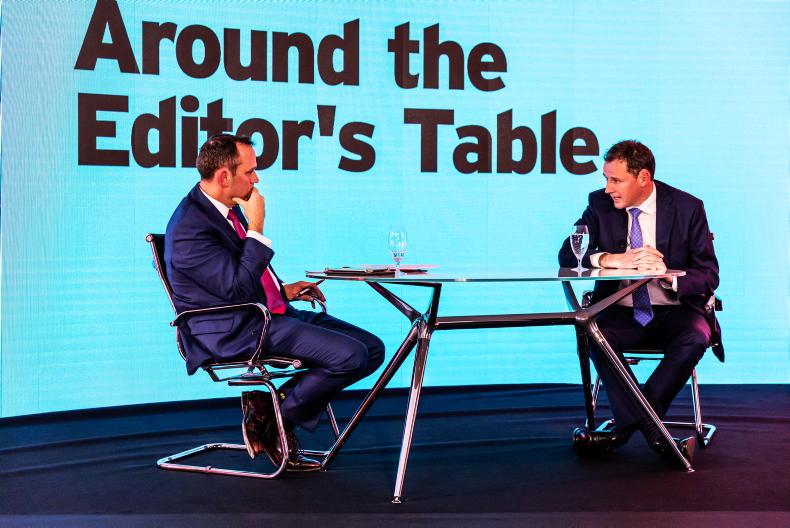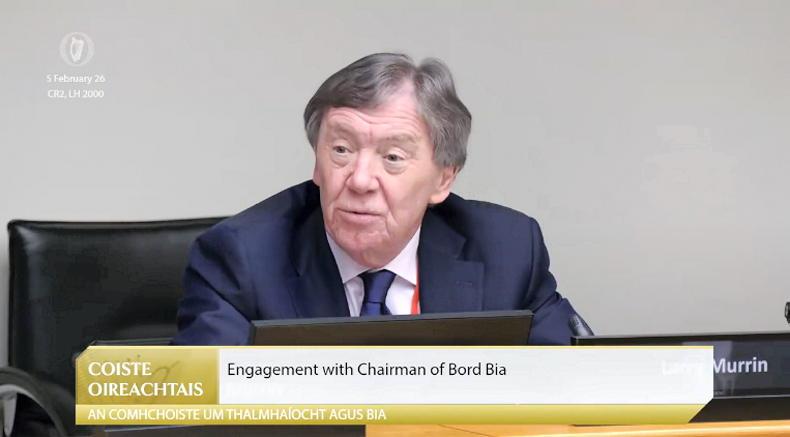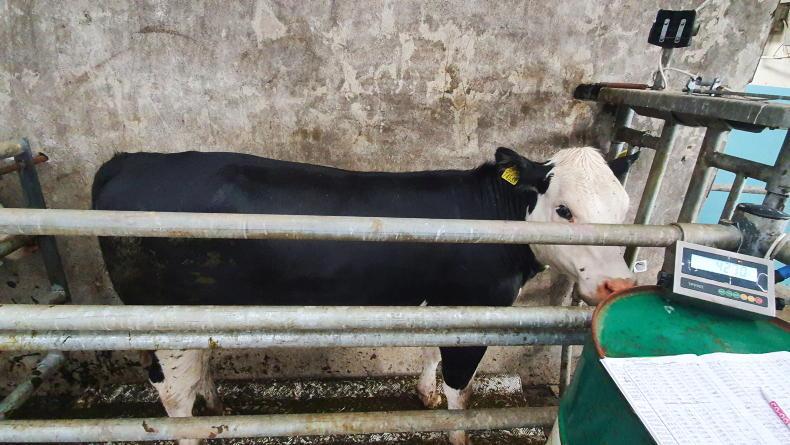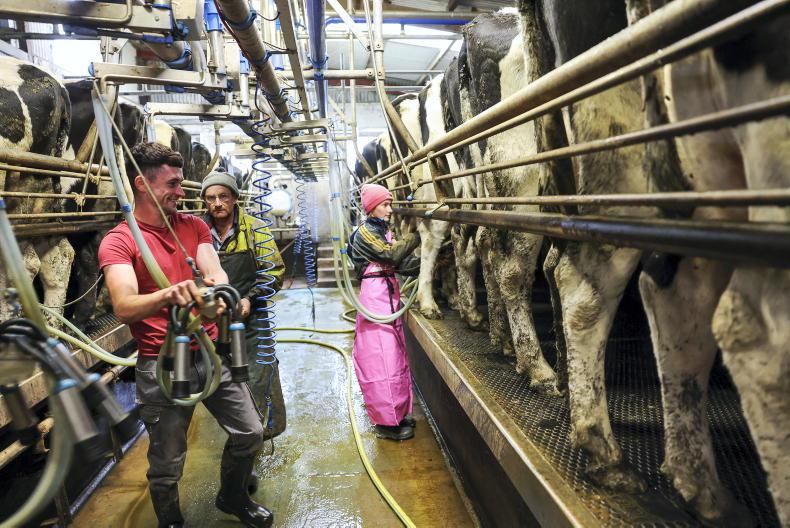On Tuesday night, Minister for Agriculture Charlie McConalogue gave a far-reaching interview to the Irish Farmers Journal as part of our Around the Editor’s Table series. The interview is available to watch back on www.ifj.ie/live and we carry comprehensive coverage throughout this week’s paper.
Overall, the minister gave a sure-footed performance, demonstrating a solid understanding of the challenges facing the sector. However, some of the solutions he is proposing will be highly unpalatable.
His view on the national herd was consistent: it cannot keep growing. There was a clear inference that if the herd did not stabilise then action would be taken by the Government. What this action would look like is not clear but it is a narrative that is clearly deep-rooted around the Cabinet table. On Friday, speaking to the Irish Farmers Journal, An Taoiseach Micheál Martin said: “The Government’s position is that we want to stabilise the national herd.”
It will be telling to see how farm organisations respond as the Government moves to ratchet up the focus on farming ahead of the Climate Change Advisory Council setting national emission reduction targets. This will be followed by targets for the agriculture sector. It will represent one of the most defining moments for the sector in at least a generation.
National herd
It is easy for Government to talk about the national herd. But a national herd doesn’t exist. Ireland’s cattle population is made up of over 100,000 small family farms that drive economic activity in every town and village. A proposal to “cap the national herd” translates into a policy that limits the ability of these farmers to optimise their business.
Just last week at the Moorepark open days, Teagasc presented a roadmap showing the potential for dairy farmers to increase profitability by over €1,000/ha while improving environmental sustainability. Increased stocking rates were a key part of the mix. A cap on cow numbers slams this door shut. It also slams the door shut on new entrants. How can a sector where growth potential is capped compete for talent?
The presence of Google and Facebook has seen farmers penalised in the level of EU support available
Is the Government going to be allowed continue with a conversation on the future of the national herd in the absence of an economic plan to support farmers in a green transition? When challenged on this, the minister said CAP would provide these supports. This is in stark contrast to how other sectors across the EU are being supported. As highlighted previously, under the EU’s Just Transition fund, Germany and Poland received multibillion euro funds to assist the transition of fossil fuel and energy intensive industries. Within the same fund, Ireland was allocated just €77m.
The issue stems from the decision by the European Commission to allocate funding under the €750bn economic recovery fund to member states on the basis of GDP per capita – a figure that is grossly over-inflated in Ireland due to the presence of tech giants and other large multinationals. As a result, Ireland received the second lowest level of funding per capita across the whole of the EU – €201 per capita compared to member states such as Portugal and Greece receiving €1,300-€1,600 per capita. Even Germany, which pumped billions of euros in supports into its national economy when state aid rules were relaxed last year, received the equivalent of €305 per capita.
There is a strong argument for farm organisations to highlight the extent to which the presence of Google and Facebook, along with others, has seen farmers penalised in the level of EU support available to help the sector in a green transition. To date, this argument has not been made.

Government approach
There are many other areas in which the Government’s approach to capping cow numbers can be robustly challenged. At international level, such a move falls foul of Article 2.1 of the Paris Agreement which details the importance of protecting food production in the goal to reduce emissions. The move even falls foul of the Government’s own Climate Bill which requires ministers to have regard for unreasonable carbon leakage and the risk of climate polices shifting production to countries with less restrictive policies regarding emissions.
In our interview, the minister clearly struggles to justify reducing beef production in Ireland only to fuel further deforestation of the Amazon to facilitate a 24m head increase in the Brazilian cattle herd.
In the past week, the Government has begun to dial up the pressure on agriculture and cattle numbers. It is imperative that farm organisations mount a robust response. There are numerous opportunities on which to build a strong campaign demanding that farmers can continue to optimise their farm businesses in an environmentally sustainable way. It is one area that all farm organisations should unite behind with one strong voice and send a clear message to the Government and rural TDs.










SHARING OPTIONS